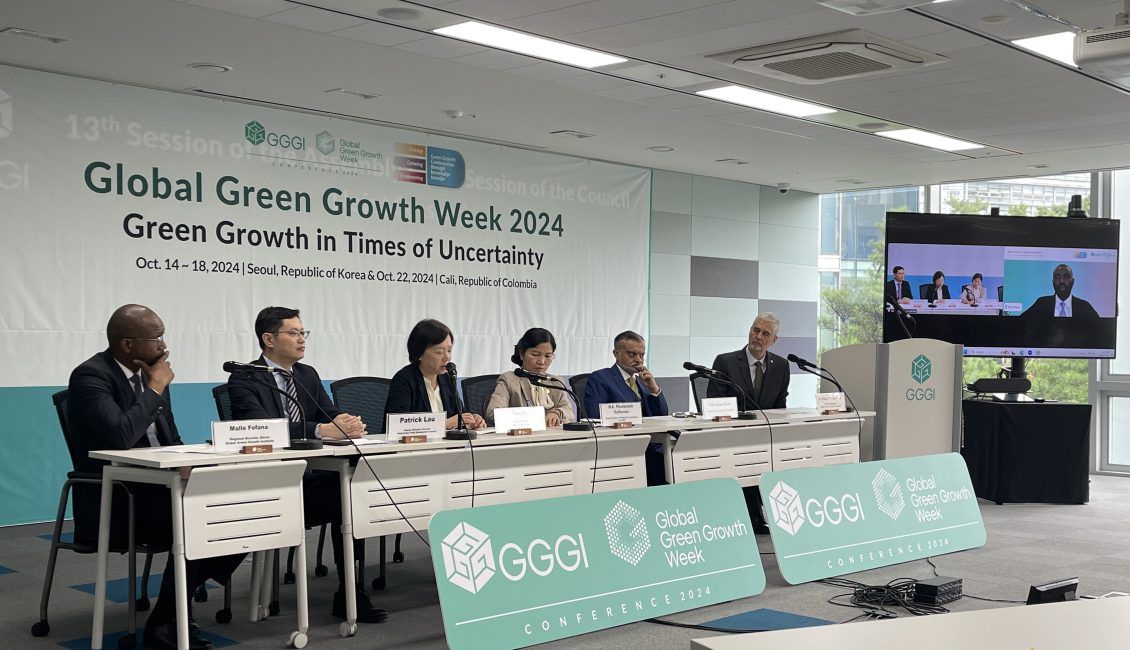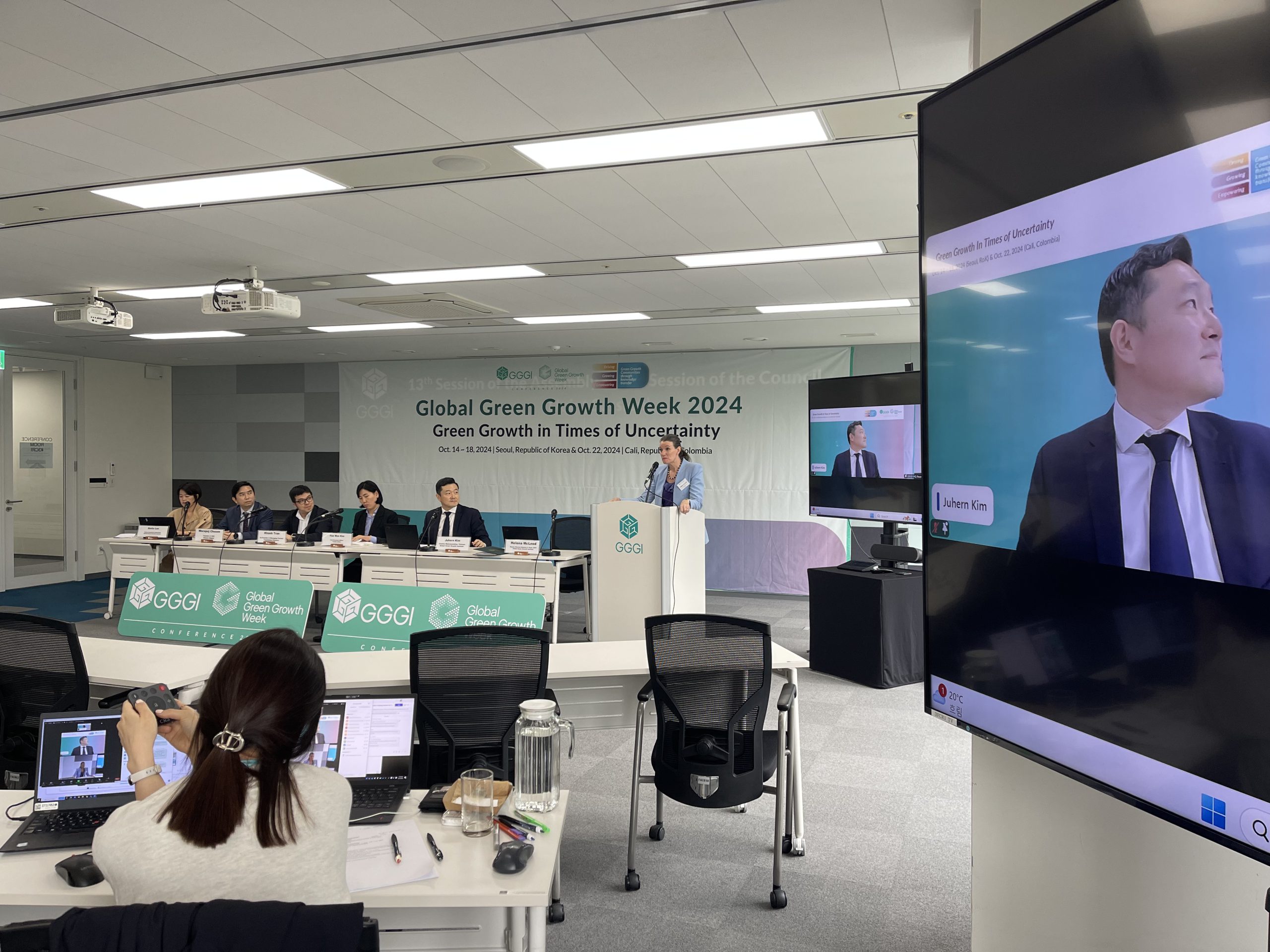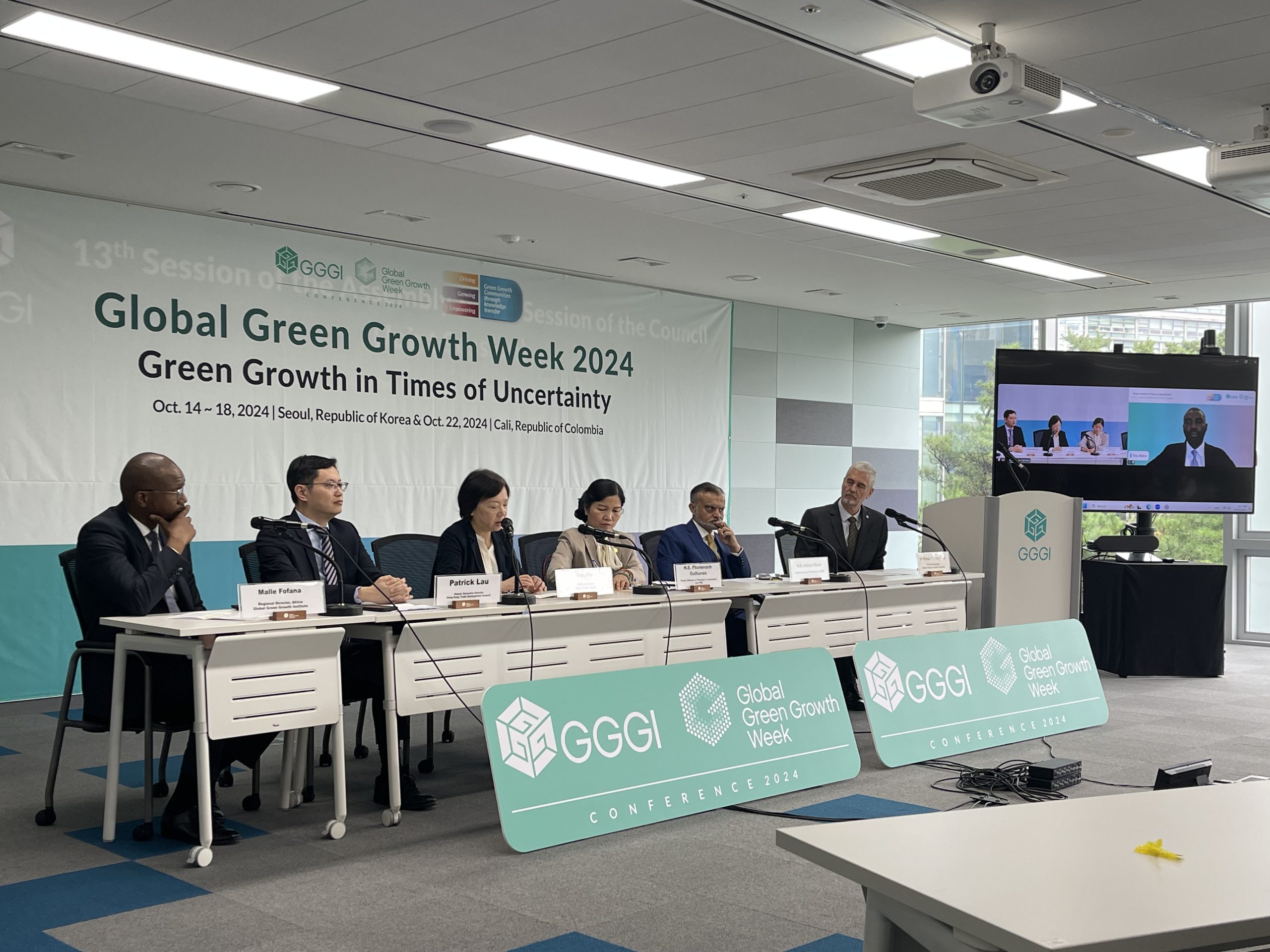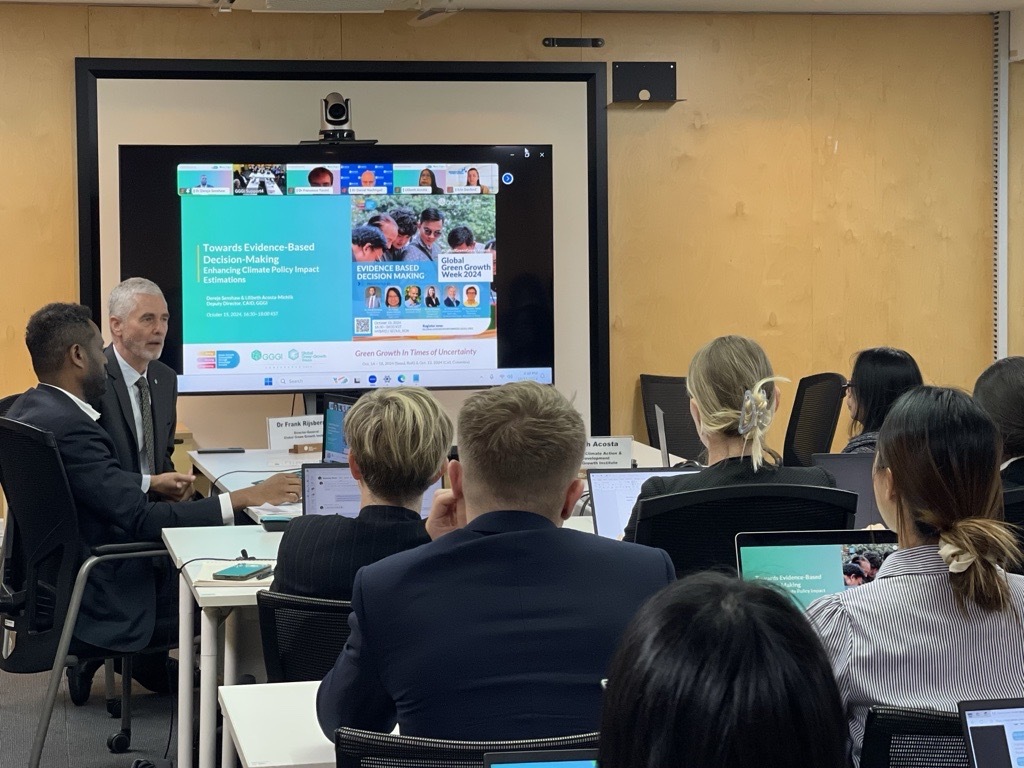
DAY 2 – October 15, 2024
AT A GLANCE: What sessions took place today?
Day 2 of Global Green Growth Week 2024 delivered 13 back-to-back sessions spanning more technological innovations across various regional contexts, high-level delegations on how to unlock the potential of the Loss & Damage fund and Belt & Road Initiatives, and future-focused conversations on evidence-based decision-making and AI use in powering green growth. Here’s how the day unfolded.
In Asia and the Pacific…
The first four sessions of the day delved into the climate finance vehicles, trends and innovation ecosystems shaping up in Asia and ASEAN region. On the macro-level, the “Climate Finance Access Network” and “Sustainable Finance Asia” sessions discussed the growing appetite for thematic bonds across maturing and matured markets, and the importance of appropriate taxonomies for classifying project proposals.
GGGI’s Regional Director for the Pacific, Katerina Syngellakis shared:
“One of the opportunities around mobilizing climate finance on inclusive and equitable energy transition in the Pacific is the design of bankable projects. And to enable that design, we need to be able to have access to the resources to do detailed studies because it increases the confidence of investors in projects – whether public sector investors, government agencies or the private sector.”

The “Pacific Transport Green Transition” and “Greenpreneurs 2.0” sessions contextualized these discussions with examples of the work happening on the ground to green the Pacific’s transport systems, and the necessity of funding climate tech innovation and entrepreneurial activity in ASEAN to accelerate climate solutions at speed and scale.
Powering the L&D and Belt and Road Initiative
Our three afternoon sessions – “Unlocking Adaptation Financing Structures”, “Operationalizing Loss & Damage” and “Greening the Belt and Road Initiative” – brought high level delegations into one room to discuss the potential to be unlocked in existing funds and policy initiatives, with particular interest in the untapped potential of Chinese financial resources.

Special Advisor to the Fijian Government on Loss and Damage, Daniel Lund, shared:
“We need to think about how financing loss and damage can be articulated in its relationship with adaptation. It is very important to recognize that there are impacts of climate change that are unavoidable due to the slow deployment of adaptation solutions.”
Three sessions explored “Climate Smart Agriculture” in the Asian and African contexts, as well as the “Africa-Middle East SAFE Initiative” in response to the natural capital, efficient and sustainable resource use, and social inclusion dimensions of the GGGI Green Growth Index.
GGGI’s Regional Director for Africa Dr Malle Fofana remarked that “the SAFE initiative places people at the center of adaptation, sustainability, partnership, and prosperity at the heart of its pathway.”
“Food security is not about how much you produce – it’s also making sure what is being produced remains affordable,” GGGI’s Qatar Senior Green Economy & Climate Finance Officer, Nadia Laribi added.
GGGI Deputy Director-General & GGPI Head had these closing sentiments to share: “Think [about] what you can do better, bigger, faster, in everything you do for the world, and we’ll get to where we need to.”

Evidence-Based Decision-Making & AI
Day 2 closed with three conceptual sessions on “Evidence-Based Decision-Making”, “AI & Green Growth”, and “Fragility and Conflict, Social Inclusion and Gender Index in Africa”. During the “AI & Green Growth” session, University of London Computer Science Lecturer Dr Ferheen Ayaz had this to say:
“First of all, we have to make sure that the AI models that we are designing [are] inclusive. In terms of inclusivity, we often talk about how inclusive it is worldwide. Every group and every country in the world should be included in this discussion. But we often forget that inclusivity can also be considered in terms of gender.”
“In terms of inclusive AI, we should make sure that the data being used for training AI must have data representing all genders and races. When we are determining climate change through AI, there should be a focus on how climate change is affecting women specifically.”


